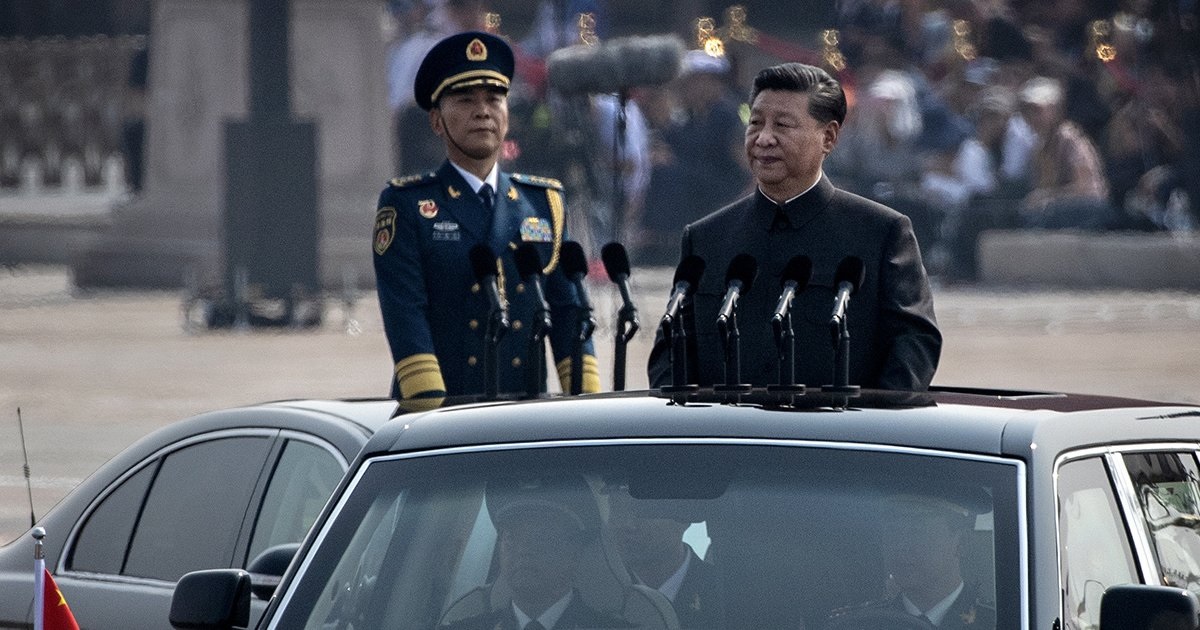Can Xi Jinping Wage and Win a War with a Corrupt Military?

Chinese President Xi Jinping, now the most powerful leader since Mao Zedong, has been awarded a third five-year term as president, solidifying his potential to remain in power for life. However, Xi's ambitions to transform China into the world's leading superpower are facing significant challenges, both externally and internally. Amidst an economic crisis and increasing pressure from Western nations, Xi is also grappling with a critical issue within his own regime: corruption in the military.
Recently, the Chinese Communist Party expelled two former defense ministers, Li Shangfu and Wei Fenghe, in what is being called the worst scandal to hit the People’s Liberation Army (PLA). This move is part of Xi's broader anti-corruption crackdown, aimed at rooting out corrupt elements and dissenters within the military.
During a Central Military Commission Political Work Conference, Xi addressed the "deep-seated problems" within the PLA, attributing these issues to a "lack of ideals and beliefs." He emphasized the need for senior military cadres to "introspect, engage in soul-searching reflections, and make earnest rectifications." According to Xi, the military must remain loyal to the Communist Party, with no place for corruption.
Despite China's aggressive posturing towards neighboring countries and its vow to annex Taiwan, Xi harbors deep doubts about the loyalty and integrity of his senior military officers. The expulsion of corrupt officials is part of his strategy to ensure that the military remains under the firm control of the Party.
Professor Steve Tsang, Director of the SOAS China Institute at SOAS University of London, points out that the concentration of power in Xi's hands poses a significant governance challenge. Dr. Willy Wo-Lap Lam, a Senior Fellow at The Jamestown Foundation, adds that Xi has eroded norms and distorted the distribution of power during his decade-long rule. Over the past ten years, dozens of top generals have been sacked or investigated as part of Xi's anti-corruption drive.
This drive has targeted various divisions within the PLA, including the Rocket Force, which handles China's nuclear arsenal. According to a Bloomberg report, US intelligence agencies have raised concerns about the PLA's capabilities, citing corruption within the Rocket Force. The report mentions instances of missiles filled with water instead of fuel and defective missile silos, undermining the effectiveness of China's military investments.
These revelations suggest that Xi may be hesitant to engage in major military actions in the near future. Despite significant investment in military modernization, the corruption within the PLA casts doubt on its combat readiness. Xi's efforts to establish a "world-class" military by 2050 face significant obstacles, particularly amid strategic competition with the US over Taiwan and the South China Sea.
In March, a top Chinese military general criticized the PLA's "real combat-oriented exercises" as "fake combat capabilities," further highlighting the internal challenges Xi faces. The ongoing purge of corrupt generals has weakened the PLA and exposed deep-rooted issues that could hinder China's military modernization drive.
Chen Daoyin, formerly an associate professor at Shanghai University of Political Science and Law, suggests that the crackdown on corruption might dissuade Xi from risking serious military clashes in the next 5-10 years. Chen argues that the rampant corruption within the PLA has shaken Xi's confidence in the military's ability to "fight and win battles."
In summary, while Xi Jinping's vision of a dominant China faces significant hurdles from external pressures and economic challenges, the internal rot within the PLA represents a critical threat to his military ambitions. The extent of corruption within the military could undermine China's readiness and capability to engage in and win a war, raising questions about the future of Xi's leadership and his broader geopolitical strategies.


